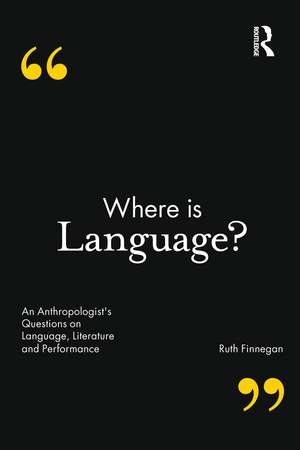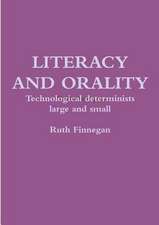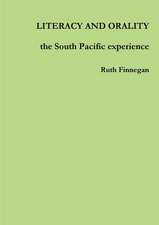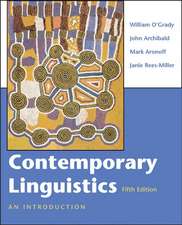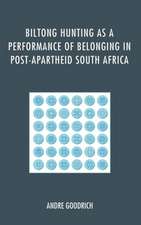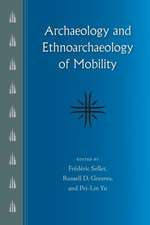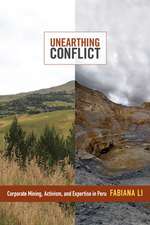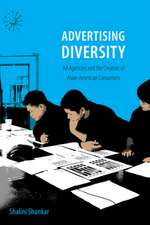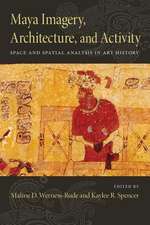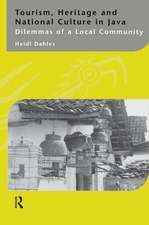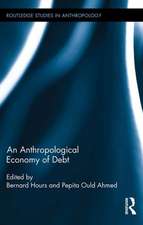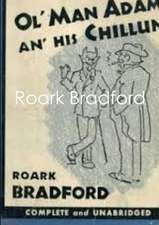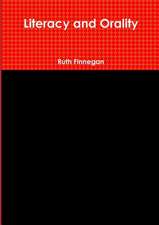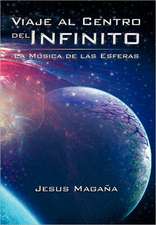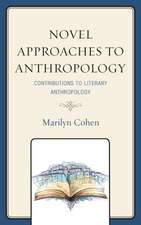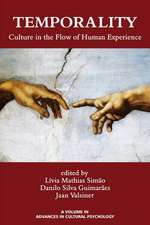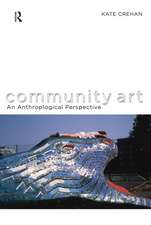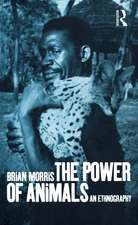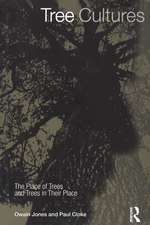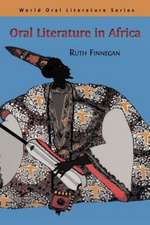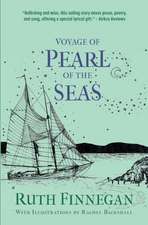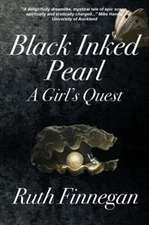Where is Language?: An Anthropologist's Questions on Language, Literature and Performance
Autor Ruth Finneganen Limba Engleză Paperback – 24 sep 2015
| Toate formatele și edițiile | Preț | Express |
|---|---|---|
| Paperback (1) | 278.54 lei 6-8 săpt. | |
| Taylor & Francis – 24 sep 2015 | 278.54 lei 6-8 săpt. | |
| Hardback (1) | 999.34 lei 6-8 săpt. | |
| Taylor & Francis – 24 sep 2015 | 999.34 lei 6-8 săpt. |
Preț: 278.54 lei
Nou
Puncte Express: 418
Preț estimativ în valută:
53.30€ • 55.79$ • 44.36£
53.30€ • 55.79$ • 44.36£
Carte tipărită la comandă
Livrare economică 31 martie-14 aprilie
Preluare comenzi: 021 569.72.76
Specificații
ISBN-13: 9781472590930
ISBN-10: 1472590937
Pagini: 176
Dimensiuni: 156 x 234 x 8 mm
Greutate: 0.31 kg
Ediția:1
Editura: Taylor & Francis
Colecția Routledge
Locul publicării:Oxford, United Kingdom
ISBN-10: 1472590937
Pagini: 176
Dimensiuni: 156 x 234 x 8 mm
Greutate: 0.31 kg
Ediția:1
Editura: Taylor & Francis
Colecția Routledge
Locul publicării:Oxford, United Kingdom
Cuprins
Preface1. Where is the Art of Language? 2. Playing with the Heroes of Human History3. ‘Artisting the Self': The Craft of Personal Story4. Forget the Words…: It’s Performance!5. Reclothing the 'Oral'6. Song: What Comes First: Words, Music or Performance?7. Competence and Performance: Was Chomsky Right After All? 8. Poem and Story: The Arts of Dreaming and Waking to Sweet Words9. Where is Literature?Further readingBibliographyIndex
Notă biografică
Ruth Finnegan is Emeritus Professor at the Open University, UK.
Recenzii
"Ruth Finnegan has that priceless quality of mixing lightness and learning which is the brand of a top-notch master ... And an extraordinary scholar she certainly is ... The result is an entertaining, well-written collection, which is meant for anyone with an interest in language ... Where is Language? is a compelling book especially because of its author. Her prose and imagination are overflowing and magnificent, her stories enchanting. - System[This] book is entertaining and well-written, and it is meant for anyone with an interest in language and with that curiosity full of desire which fuels its author. - Rassegna di Linguistica IngleseAs a professor, thinker, and reader, I greatly enjoyed reading Where is Language? An Anthropologist’s Questions on Language, Literature and Performance by Ruth Finnegan. It was stimulating and informative. Reading about how gestures are systematically coordinated with speech and whether the boundaries of language should include them was eye-opening. … Language is complex, but Finnegan helps us see it from a new viewpoint that includes performance and oral literature. - Lori's Novel News - Lori A. MooreWhere is Language? is an impassioned corrective against [the] narrow vision of the place of language in human affairs. Finnegan wants to remind us of the embeddedness of language within broader multimodal practices. … Folklorists, linguistic anthropologists, documentary linguists, and ethnomusicologists will find much in here that they will agree with… It is passionately and thoughtfully argued. - Journal of Folklore ResearchFinnegan’s unique insights into the nature of language will appeal to researchers interested in orality, literacy, narrative, ideology, and performance of different cultural communities. Finnegan’s engaging and lyrical prose will delight anyone who has a keen interest in understanding human communication, especially across cultures … Overall, the book is a fine addition to contemporary understanding of language and communication. - LINGUISTLISTThis pioneering work ... offers a unique insight into the multi-modality of language that leads scholars to rethink the fields of language, literature, and performance. It should prove to be of particular value to those interested in the fields of social linguistics, pragmatics, and linguistic anthropology. - Language in Society"
Descriere
Language is central to human experience and our understanding of who we are, whether written or unwritten, sung or spoken. But what is language and how do we record it? Where does it reside? Does it exist and evolve within written sources, in performance, in the mind or in speech?
